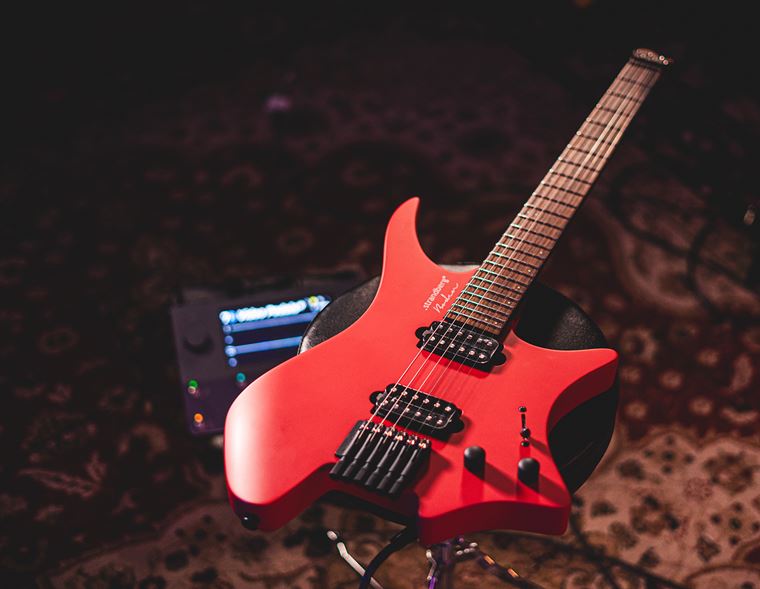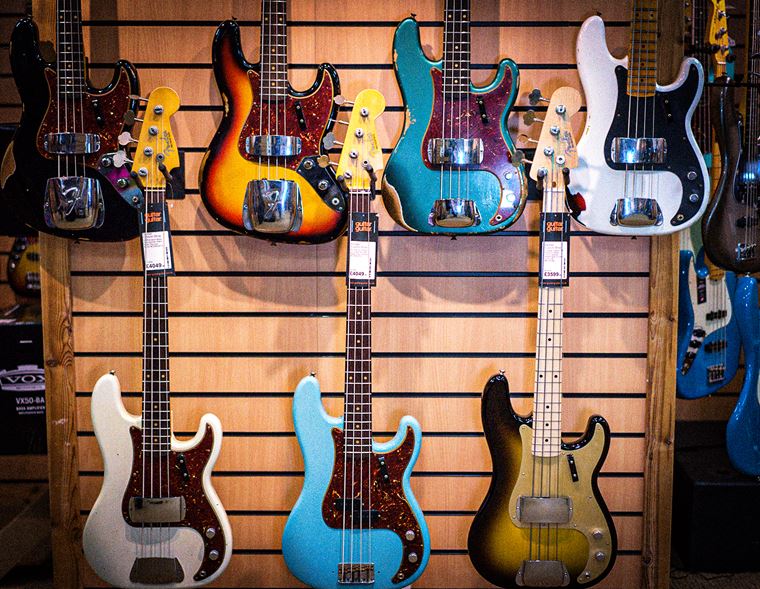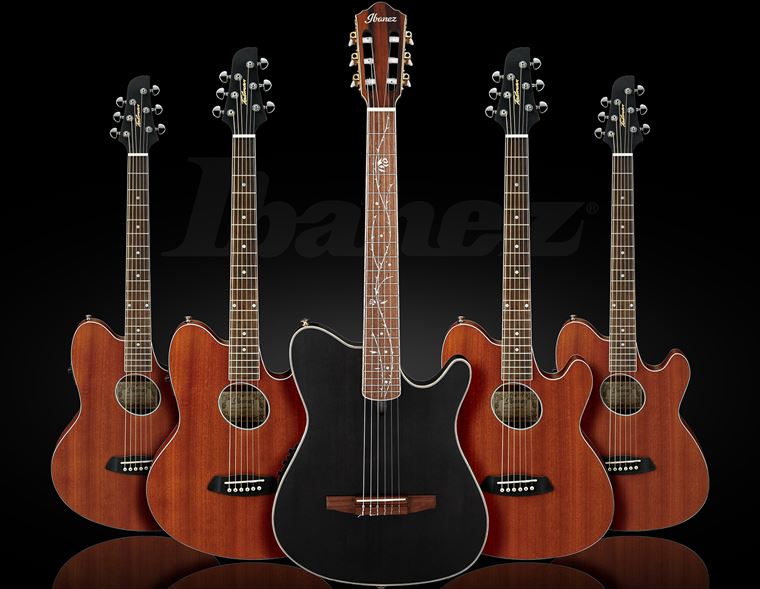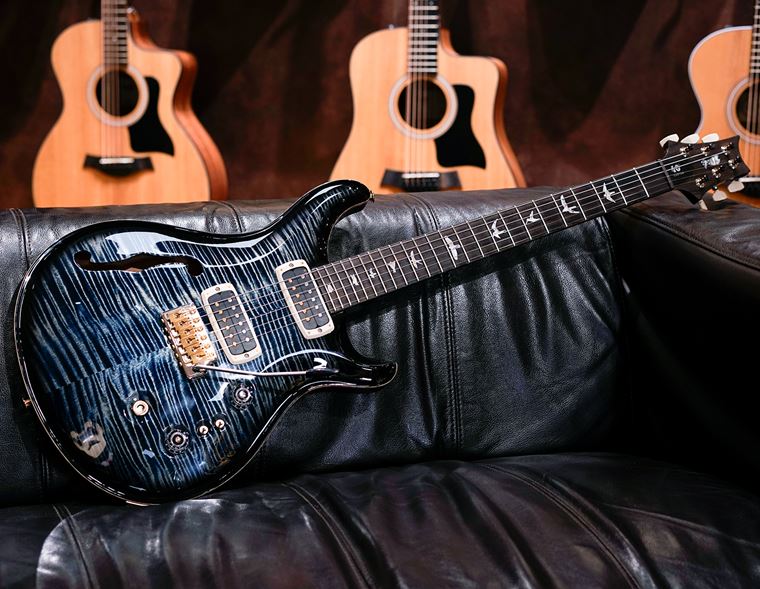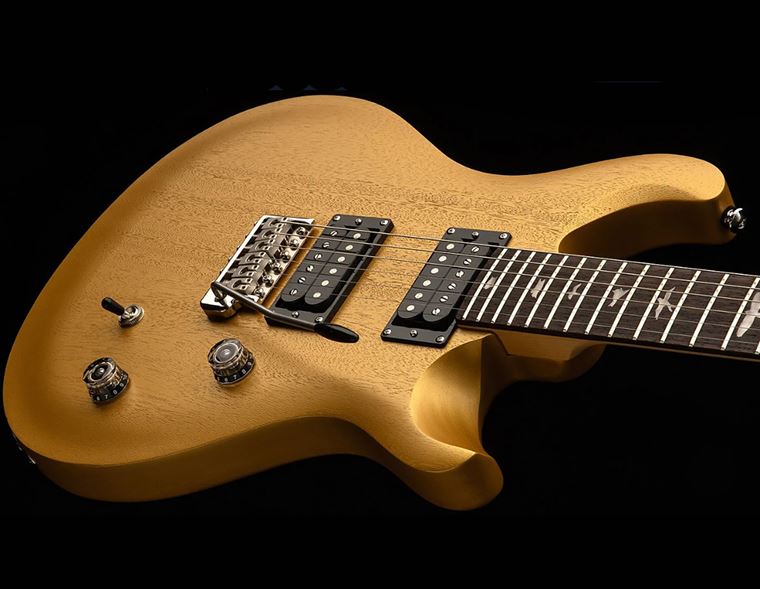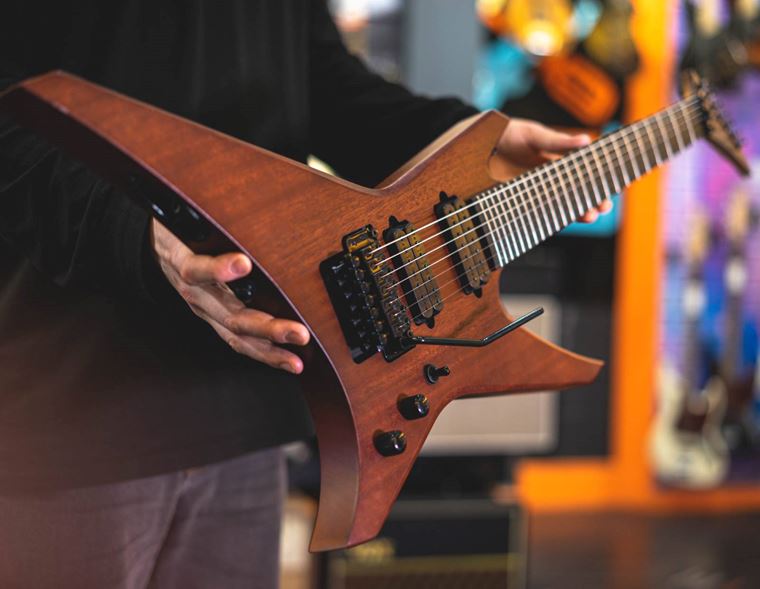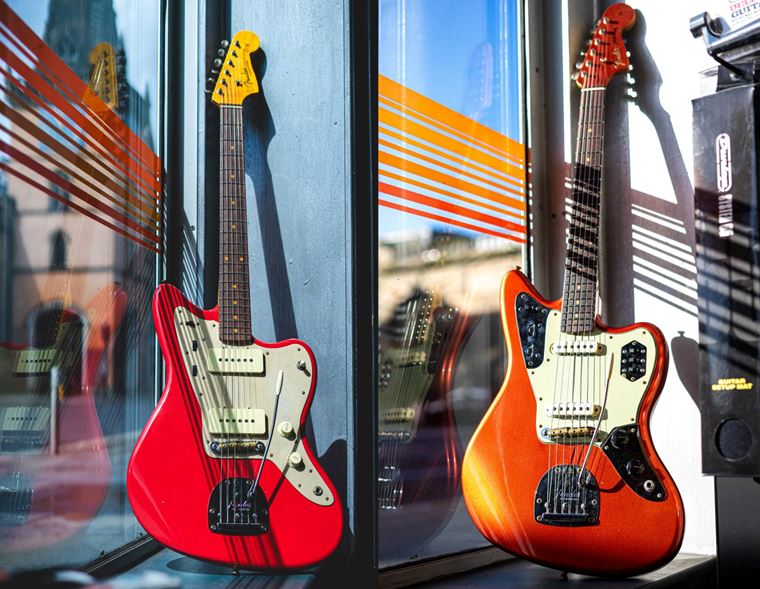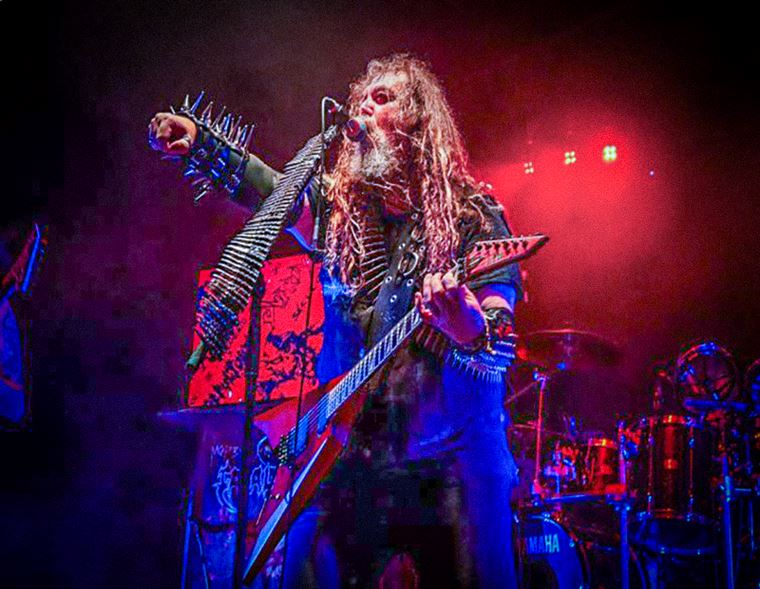Film Scores With Guitars
Guitars and Movies.
We all love both, and there is certainly something magical that occurs on the silver screen when the orchestral highs of a movie soundtrack are met with the twang and drama of an electric (or acoustic!) guitar. When it’s done right, guitars within movie scores can be some of the most effective pieces of music ever. Today, we want to just jump in and share a bunch of these moments with you! Most are electric guitar moments, but the acoustic shows up in important situations also. Initially, we were strictly going for a ‘soundtrack only’ vibe, so no ‘in-movie’ guitar playing would be featured. However, we felt that the likes of Marty McFly rewriting history on his Cherry Red ES-345 and Steve Vai playing the Devil’s guitarist (does Satan have an entire band?) were too much fun to miss out on, so they’re included at the end!
Now, grab your enormous box of popcorn, turn your phone off (unless you’re reading this on your phone) and join us in the front row as guitarguitar goes to the movies...
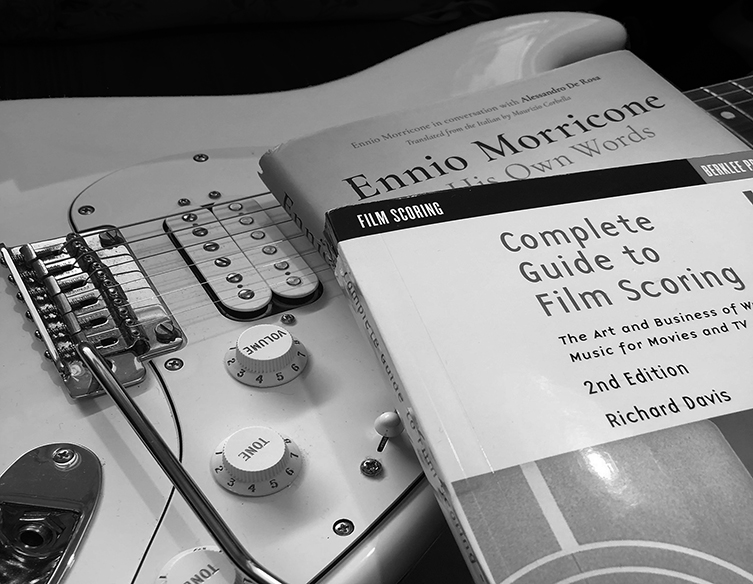
James Bond (all of them)
We may as well start with the most famous movie guitar lick of them all, right? This simple, suave piece of riffing is so slick and iconic, it’s almost a parody these days. As soon as those first notes light up, you instantly picture a besuited man casually walk towards the centre of the screen before drawing his ‘piece’ and nailing you with a mercilessly placed bullet. It’s an odd way to start a film, when you think about it (the good guy shooting the audience) but nobody cares because everything about it is just too cool.
The composer was of course the wonderful John Barry, and the guitarist on the original soundtrack (for Dr No in 1963) was the excellently named Vic Flick.
Try playing any low-register melodic riff on a guitar with a clean twangy tone and see how much it instantly becomes a piece of ‘spy music’. That’s when you know you’ve changed culture. Bravo, Mr Bond.
The Dollars Trilogy
Sitting closely behind the James Bond Theme in the culturally significant stakes is Ennio Morricone’s immortal twang-fest for Sergio Leone’s Dollars Trilogy. Picture Clint Eastwood wearing a chunky kaftan, smoking a cheroot and squinting at you sardonically. He’s mean, he’s tired and he’s had enough of you. In the background, you hear some music playing. That sound you instantly recognise is the Spaghetti Western’s most-associated instrument: the twangy Strat, once again!
Rather than blend the guitar in with the orchestra, Morricone used its relatively anachronistic presence as a featured solo instrument, much as Barry did with the Bond music. Doing this makes the guitar stand out and have proper ‘moments’, making you remember it all the clearer.
We totally get the fact that electric guitars didn’t exist in the days of the Wild West, but what kind of party pooper are you? The music is incredible, and sums up an entire genre! So much said with so little: it’s a great lesson for any guitarist to take note of.
Pulp Fiction
There is certainly a theme running here, with twangy Strats being played with some seriously swaggering attitude! For Quentin Tarantino’s massively influential 1994 movie Pulp Fiction, he raided his own vinyl collection from the 50s through to the 70s in order to give his stylish movie a somewhat self-consciously hip/off-kilter soundtrack. Pulp Fiction seemed to be rooted in no particular time, and the music really helped sell that with contributions from such diverse artists as Dusty Springfield and Kool & The Gang.
The one everybody remembers, of course, is Dick Dale’s furiously fast Miserlou. This brilliantly tiring performance is one of those tunes that separates the players from the pretenders indeed: try playing along with the song and realise that you just aren’t fast enough...
Kill Bill Vol. 1
Sticking with Quentin Tarantino (he is certainly a real tastemaker for film music, given that he is a director and not a musician or composer), our next genius guitar moment comes from the first part of Kill Bill. Although it sounds like it was custom made for the movie, Battle Without Honor or Humanity was written and released several years before, for an entirely different film. This tune is by the Japanese guitar great Tomoyasu Hotei, and is the piece of music we all secretly wish would blast from the speakers whenever we push open the doors and swagger into a nightclub. Cool points instantly elevated.
The Deer Hunter
Taking a brief break from all of the relentless gangster posing those other tunes have inspired, we now move to a delicate and wonderful piece of acoustic guitar film scoring. Deceptively difficult to play, John Williams’ (no, the other one) lyrical and heartbreaking Cavatina is used throughout The Deer Hunter to provide a stark dramatic context to the struggles and quiet desperation of Robert De Niro and Christopher Walken’s haunted Vietnam vets, underscoring the truth that getting out alive doesn’t mean you survived it.
Inception
‘Bombastic’ is the single word we’d use to describe this brief and brilliant slice of danger from Hans Zimmer. In 2010, the world had not yet grown tired of the overuse of those huge brass blasts, so Inception’s soundtrack stood out like a whole new concept in film scoring.
Note how little dialogue is used in the last 40 minutes of the movie, compared to Zimmer’s propulsive, ultra-dramatic score. It’s almost a character in the story!
Whilst most of the score’s doom-laden power derives from the massive orchestra (nearly double the size of a regular symphony orchestra, according to Zimmer), much of the initial texture comes from the appearance of an electric guitar. Who plays on this? None other than indie rock hero Johnny Marr, who often accompanies Zimmer live on his tours, too. Nice gig!
It’s not Zimmer’s fault that everyone ripped this sound off for years afterwards. The original, as you hear here, is as monumental and inspiring as it always was.
Top Gun
You can already picture big-haired Steve Stevens standing in front of fighter planes on an aircraft hangar, giving it big licks in the best 80s fashion, can’t you? It’s an image that’ll never fade, just like Tom ‘Maverick’ Cruise’s mad cackling face as he (eventually) pilots some planes in Top Gun. Whichever way you cut it, it’s a very silly film, and the theme tune, written by Harold ‘Beverly Hills Cop’ Faltermeyer sums up its gleeful, high-fiving optimism brilliantly. We’re not sure exactly when this type of film score went out of fashion (ages ago at any rate), but we wouldn’t mind them coming back. “I feel the need! The need for SPEED!”
Thelma & Louise
We’re back with ‘The Zim’ for another evocative score, and this time it’s almost the opposite of Inception’s grandeur. For Thelma and Louise, a beautiful movie about escaping bad situations and following one’s joy, Zimmer decided to play his cards close to his chest and deliver a very ‘American’ sounding score. Given how much Ridley Scott’s direction soaked up the stunning, expansive vistas of the American West, the choice to bring in super-atmospheric slide guitar (played by the late, great Pete Haycock) was a touch of genius. It’s exactly what is needed, especially to underscore the fatalistic decisions made by our two heroines who just said ‘enough’s enough’. If this music doesn’t bring a tear to your eye, you’re not a human!
Lethal Weapon
What better to score Mel Gibson’s stupendous mullet and mad-eyed glare than the sound of endlessly shredding guitars? That’s what composer Michael Kamen obviously thought when he penned the gloriously ‘of its time’ Lethal Weapon score. Depending on your age, you’ll either remember Lethal Weapon’s overt ‘80’s-ness’ fondly or you’ll stare incredulously at it, wondering how such entertainment ever got made in the first place. We love it though, and feel that yet another guitar solo is definitely just the right thing for Gibson and Glover to run through the rain to. Kamen went on to provide orchestral scores for Metallica’s S&M album, so he was obviously a frustrated rock star, really. Oh yeah, who was the guitar player on the Lethal Weapon soundtrack? Some guy called Eric Clapton...
Young Guns
Following hot on the heels of Lethal Weapon is another film that likes to mix guitar solos with climactic gun battles. If the electric guitar’s presence in the Dollars trilogy was somewhat anachronistic, then there’s really no way to explain their inclusion here in a movie about Billy the Kid! Again, who cares?
The film’s storyline is surprisingly true to reported real-life events, but we doubt that Billy and his pals had quite so rad a soundtrack to their robbing and killing. That’s what movies are for! Next time you have your guitar on and are cranking out a huge solo, try to picture dusty outlaws getting blasted left, right and centre. It’ll add heaps of drama to your session!
Dead Man
Neil Young’s score to Jim Jarmusch’s oddball Western is certainly bold, but we can’t decide whether that boldness is genius or just plain lazy. The whole thing is almost literally Young playing a single electric guitar now and then, whenever he feels like a scene needs ‘something more’. There are almost no other instruments of any kind, nor any other performers. It’s certainly an interesting approach, and Jarmusch is one of those filmmakers who seems to get away with anything, so we’ll mark this one down as an unusual triumph for electric guitar in movies. Let's face it, it sounds brilliant!
Crossroads
People like to ask whether Crossroads is any good as a film. That’s like asking if Keith Richards is an amazing guitarist: it’s quite beside the point. Crossroads is a kind of buddy movie that explores the Robert Johnson soul-selling blues myth with the help of the kid from Karate Kid. If you’re a little younger, we mean the awkward embarrassing dad from Cobra Kai.
Anyway, the climax of the movie is a duel between Daniel-san and one Jack Butler, better known to us all as Steve Vai. Each man plugs in his respective axe, faces his opponent and goes for it. Increasingly ridiculous licks are traded back and forth in a battle of skills that’s referred to in the movie as ‘cutting heads’, which we don’t understand. You’ll hear an early version of the Bad Horsie riff, you’ll watch in amazement as (secret stand in for the hero because the actor’s miming) Ry Cooder’s wild slide playing defeats Butler’s unholy shred technique, and you’ll wonder what this all means for humanity at large. Interesting factoid: as the duel intensifies, both player’s parts are eventually played in the studio by Vai, since presumably only he is fast enough to outplay himself!
Back to the Future
It’s the guitar scene to end all guitar scenes. Marty McFly, cocky skateboard-riding teenager played by diminutive 25-year old Michael J Fox, has travelled back in time via his weird mate’s car only to find out that his own mum fancies him and that his dad is a loser. To save his own future self from never existing, he has to make his would-be parents fall in love. It’s a tricky sell, to be honest, but the film’s charm and humour seems to stop us thinking too hard about how bang-out it really is.
Much like in Crossroads, the climax of this movie depends squarely on the protagonist’s handiness with a guitar. Thankfully, McFly has had 30 years of future music to draw on, and so gives his unwitting audience a masterclass in ‘look at me’ guitar playing. We get Chuck Berry, Pete Townsend, Jimi Hendrix and Eddie Van Halen in there as our man gainfully leaps around the stage, inventing rock music whilst saving his own future in the process. It’s silly, it’s worrying and it’s deliriously good fun. We don’t recommend copying McFly’s moves unless you are very confident, especially when handling a delicious 1950’s Gibson ES-345!
What Did We Learn?
After checking out this wild assortment of movie-guitar scores, it seems to us that the 80s were particularly huge for electric guitars in soundtracks. This kind of makes sense, given the proclivity of Hair Metal and so on emerging from LA, where Hollywood also resides, alongside the big recording studios and session scene. It’s a bit simplistic to say that’s the reason why, but these things do tend to coincide.
Also, for whatever reason (cultural programming and familiarity we suppose), cowboy movies seem to work really well with electric guitars. It also seems that some sort of Stratocaster-sounding guitar is the way to go. Why? Don't know. Perhaps Morricone thought they cut through an orchestral mix more dramatically? Neil Young would disagree, of course.
Some examples today were songs that already existed, but their use in the movies we picked (we’re talking about the Tarantino stuff here) elevated those pieces of music and sort of re-appropriated them to the point that everyone’s first association is now with the according movie.
The last two – Crossorads and Back to the Future – were there for fun more than anything else. They don’t necessarily fit the bill in terms of guitars being used in the film scores themselves, but we thought their inclusion was merited anyway. For some reason, we didn’t feel the same need for Wayne’s World, or This is Spinal Tap, since those films are more directly about rock music, rather than, say, Inception, which has nothing whatsoever to do with rock music but still has the guy from The Smiths playing guitar throughout the score. Also, movies with 'song' soundtracks (Bill & Ted, Singles, Empire Records etc) are not what we're talking about here.
We hope our criteria makes some sort of sense, but let’s not get too upset about it all! Just click through the videos, revel in all of that filmic guitar pleasure, and start a petition for the return of OTT guitar solos in movies again! No doubt we left out some crackers, so be a sport and hit us up with a comment about which guitar-infested film score we’ve left out of our list! Thanks for reading!
Ray McClelland



